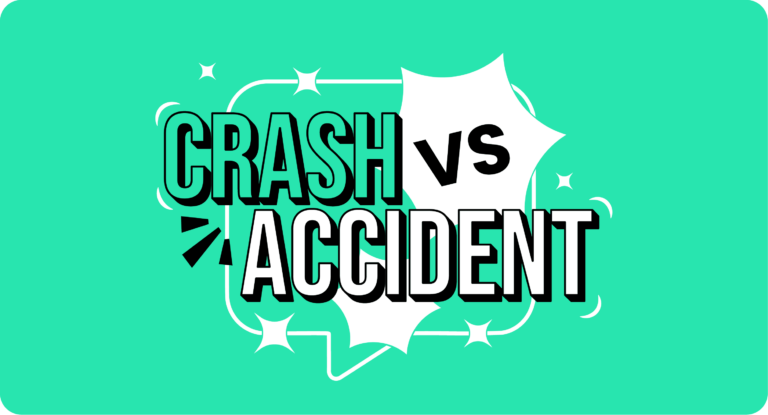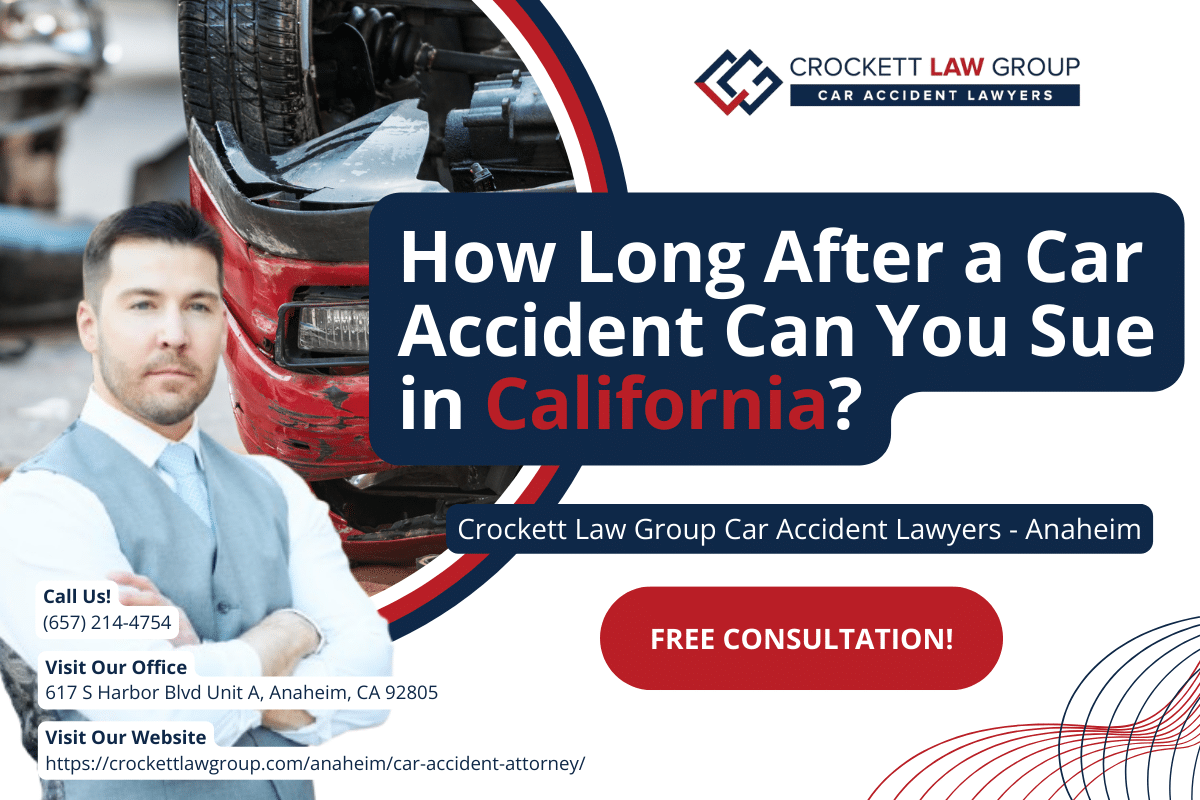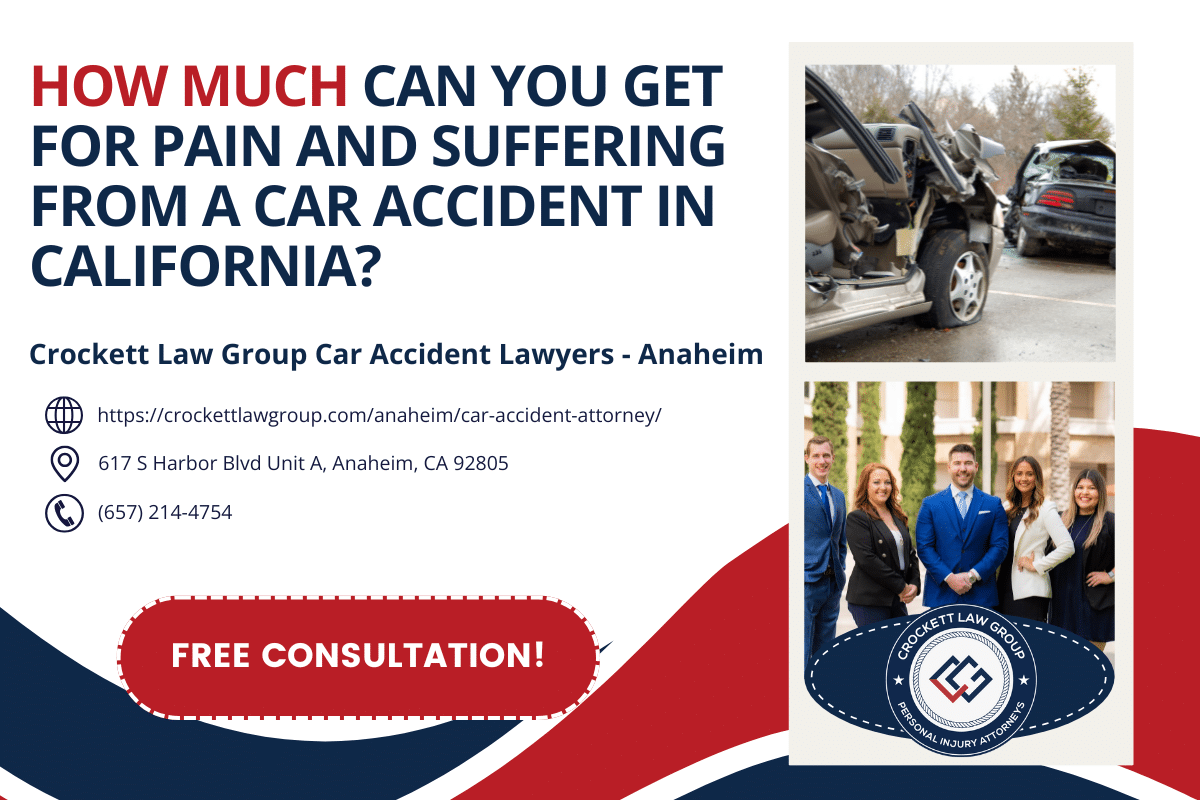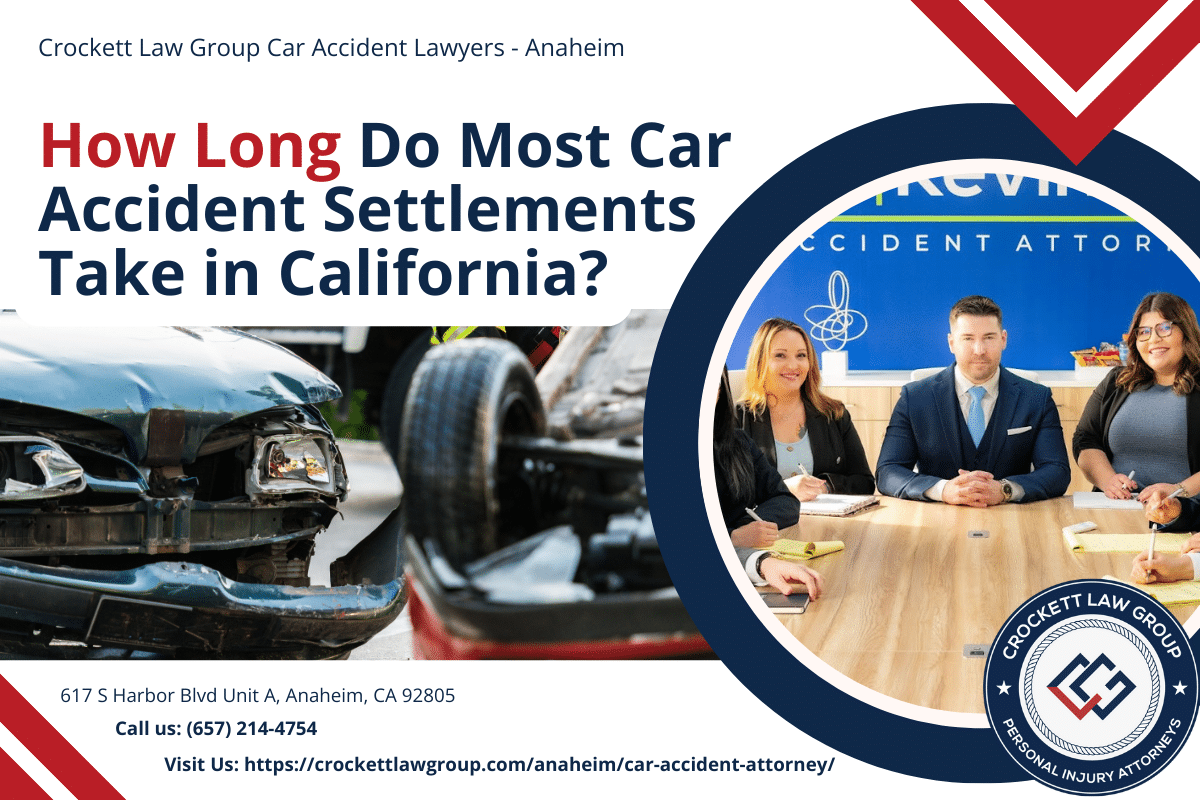When filing a lawsuit, fault matters. The key difference between these two words, however, is that the term accident implies the crash did not happen through the fault of another person.
When navigating a collision with another vehicle, you may have referred to the incident as an accident multiple times. In fact, you may feel that neither party was trying to injure the other, so “accident” seems appropriate. However, there is a distinct difference between an accident and a crash.
While these terms are used interchangeably, knowing the meaning of these terms is important to understanding how we handle your case as car accident lawyers and what you need to know as you navigate a lawsuit. At Crockett Law Group, we focus on helping you not just get compensation but also understand how these accident claims work and what you can expect from your case. If you have been struck by another driver who was acting negligently, we are prepared to help you understand the key differences between these two terms.
How the Difference between a Crash and an Accident Can Impact Your Claim
The difference between a crash and an accident involves liability for the case. Referring to something as an accident implies that it was not a particular person’s fault. For example, accident is a more appropriate term for situations where slick roadways or unforeseeable hazards cause you to lose control of your vehicle.
When a collision or accident is a crash, there is an implication that one party or another is at fault. This is a more appropriate term for most car crash claims because California is a fault state under California Civil Code 1714. This statute states that the liable party is also financially responsible for your injuries.
Distinguishing between an accident and a crash is important because an accident may not provide avenues for a lawsuit while identifying the incident as a crash gives you grounds to hold the other party at fault. While these terms are generally understood as interchangeable, knowing the difference can help you better understand your options to move forward, and we can step in to help you through this process.
Pro Tip
While many people understand the terms crash and accident to be interchangeable, being specific with your phrasing can be vital when the at-fault party does not want to pay for your recovery. For example, the insurance company may try to use anything you say against you as you navigate your claim, so take care with how you phrase your comments and questions.
Proving Liability for Your Car Crash
One of the first steps in navigating a car crash claim is holding the negligent party financially responsible for their actions. When someone is careless with your safety, you should not have to pay out of pocket for the damages and losses you have suffered because of their actions. However, it may be difficult to determine who is at fault, which can be especially tricky in cases where you are unsure whether another person is responsible at all.
As your personal injury lawyers, we are prepared to help you navigate fault and determine liability. Gathering evidence and pinpointing the responsible party after a car crash can be difficult. We can help you identify any potential at-fault parties below and any others that may be specific to your case.
Another Driver
You may have been injured in some cases because another driver was careless. When someone else causes a crash, they may be held personally responsible for your accident injuries. Some of the most common causes of car accidents, according to the National Highway Traffic Safety Administration, include driving distracted, speeding, and driving drunk.
In fact, many of these may also lead to criminal charges. Cell phone use is prohibited while driving a car under California Vehicle Code Section 23123, and driving under the influence may be punished under California Code 23152(f). These charges can be used by our team to help solidify liability in your car crash lawsuit.
The Employer of the Other Driver
In some cases, the other driver may have been negligent and caused the accident, but they may have been acting within the scope of their employment. In situations like these, while they may have caused your crash, financial liability may fall on the driver’s employer. Employer liability doctrines state that employers are generally responsible for the training and vetting of their drivers.
However, the driver may be responsible in certain circumstances, such as being off the clock and traveling of their own volition. You may also need to take action against the driver in cases where you are hurt by a rideshare driver. When a driver is considered an independent contractor, you may instead have opportunities to file under their insurance policy, which can potentially help you settle.
Government Agencies
In some cases, your accident may have been caused by problems with the roadway itself. You may have struck a deep pothole that damages your car enough to cause you to lose control of the vehicle. In other cases, a defective road design may have led to pooling water, leading to hydroplaning, which caused your accident.
When this happens, the California Department of Transportation can potentially be held responsible for your injuries. If the agency is made aware of dangerous road defects but fails to repair them, it may be responsible for not acting reasonably. However, remember that suing a government agency can be difficult, starting with a 6-month statute of limitations according to California Government Code Section 905, so reach out to us as soon as possible if you believe a government agency may be responsible for your case.
Manufacturers
You may have believed your crash was purely an accident, but that accident may have happened because of a part’s failure. For example, your brakes may have failed, or your steering wheel may have locked up, causing you to lose control of your vehicle and crash. In these situations, you may have grounds to seek compensation from the manufacturer of that part.
When a manufacturer produces a vehicle part with defects that cause injuries, the manufacturer may be responsible for the damage they have caused. In these situations, you may need to gather evidence showing the dangers of that product defect and contact expert witnesses to provide the support you need. Fortunately, we have the resources you need to get help.
Note
This may not be an exhaustive list of potential at-fault parties who may be responsible for your injuries. If you have any doubts, concerns, or questions about the specifics of your case, we are happy to pursue answers for your claim.
When You Have Grounds for a Lawsuit, You May Have Grounds for Compensation
When you are involved in a California car crash, you may already know you have grounds for a lawsuit but may be unsure what your compensation is worth. This compensation should cover any losses or suffering you have experienced, giving you the funding you need for your recovery. Below are a few examples of the damages you may be due.
Economic Damages
Economic losses are one of the biggest issues you will face as you navigate a car crash claim. Recovery from a car accident can be expensive, and you may need compensation for current and future medical bills, lost wages, property damage, and more. We offer the tools you need to gather proof of the economic damages you have already suffered and estimate your future costs.
Non-Economic Damages
Your compensation goes beyond the financial costs of your accident and includes the pain and suffering you have experienced because of your injuries. Your pain and suffering are intangible, but that does not mean you are not due compensation for your losses. These damages may include emotional trauma, loss of consortium, loss of enjoyment of life, and more.
Injuries in Any Collision Type May Lead to Dangerous Injuries
Unfortunately, in both car accidents and crashes, you may suffer devastating injuries. These injuries can lead to lifelong effects that can be navigated but may never be back to what was normal for you before the crash. Below are some of the more catastrophic injuries that you or a loved one may have suffered in your collision:
- Traumatic brain injuries
- Internal bleeding
- Spinal cord damage
- Broken bones
- Burns
- Death
In cases where a loved one has died because of a car crash, you may have grounds for a wrongful death claim. Car crashes can have life-altering effects, and sometimes these accidents are fatal. We provide answers for your next steps toward justice, closure, and compensation as you navigate the aftermath of your collision.
California Law May Impact the Success of Your Crash Claim
As you navigate a car crash lawsuit, you may struggle to recover from your case’s specifics. You may have significant evidence against the at-fault party, but you may also struggle with the California laws that can impact your case. Unfortunately, that leaves many people facing a reduction of the value of their claim or even an entire dismissal.
When we accept a car crash claim, we focus on helping our clients navigate these laws. With our guidance, we can focus on the legal aspects of your case while you focus on your physical recovery. Taking these steps for the following laws can help you get answers and compensation.
Statute of Limitations
When a car crash happens, the statute of limitations begins running the day of the accident. According to California Civil Code Section 335.1, you have only two years to file a personal injury claim following a car crash. If you do not act within this time, your compensation may be dismissed, leaving you paying out of pocket for your injuries and damages.
Fortunately, acting quickly can also help your case. Evidence can decay or be lost over time, making it more difficult to navigate a legal claim. When you act swiftly with the help of an attorney, you have better chances to avoid mistakes and deadlines that can hurt your case.
Comparative Negligence
While you may have evidence that another driver caused your crash, you may also be accused of partial fault. For example, the at-fault driver may claim that, even if they caused the crash, you were texting and driving or were otherwise distracted when the accident happened. That can have severe negative consequences for your case.
Under California Code Chapter 1714, your compensation may be reduced by the amount of fault you accept. For example, if you are found 20% at fault for the accident and accept that fault, you may only receive 80% of the compensation you are due. We can pursue better results that can help you secure your compensation.
Tip
If you have any questions about how state laws can impact your case, do not leave your well-being at risk. Contacting an attorney as soon as possible about your case can help you make the right decisions for your future.
Our Team Is Prepared to Identify the Details of Your Crash and Get You Started with Experienced, Aggressive Representation
When navigating a collision with another vehicle, you may have difficulties determining whether your accident should be labeled as a crash or an accident. These terms are not as interchangeable as they may seem, and knowing the difference can help you take action to secure your rights to compensation. Unfortunately, it can also be difficult to get answers, and you may struggle with proving you are due compensation or proving that someone else was responsible for your injuries.
Fortunately, at Crockett Law Group, we understand how important this difference is, and we are here to help your claim succeed. We offer free consultations for our clients, reviewing the specifics of their crashes and determining the best next steps for their recovery. If you are facing issues like these and need help, reach out to attorney Kevin Crockett by calling or completing our online contact form.










